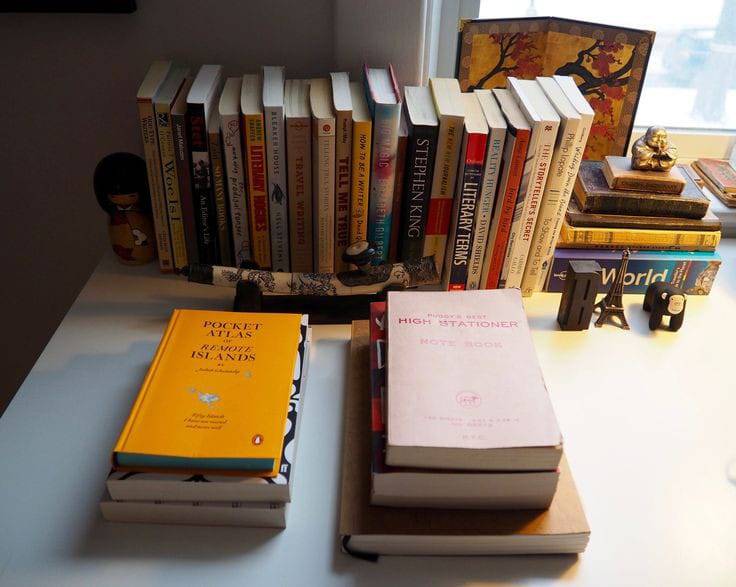The thrill of creating something from nothing is thrilling. But, as every writer soon finds out, there’s a catch: the story you see in your head rarely matches what you put down on paper. This is where feedback loops come in, an important tool for writers that improves your writing and also acts as a reality check.
Feedback loops are not only about fixing what’s broken, they’re also about growth. They challenge a writer to step outside their bubble of self-assurance and invite others into their creative world. When done right, they’re the difference between an amateur’s draft and a professional’s bestseller.
Feedback is a conversation. It’s someone telling you how your work made them feel, what worked for them, and what didn’t really relate. The goal isn’t to tear your work apart but to help you see it from angles you might have missed. Writing is deeply personal, which makes feedback feel like an attack sometimes. But when you look closer, you’ll realize it’s less about judgment.
The whole point of feedback is to help writers grow. When you tell someone what you do or don’t like about their work, it’s not because you want to criticize them for sport it’s because you want them to learn from the experience and improve. And while most writers never find out whether their work improves because of feedback, the rare moments when someone tells you, “Hey, your advice really helped me,” are incredibly rewarding. It’s proof that this process matters.
For writers, getting feedback on their work completes their desire to be understood. You don’t just write for yourself; you write for readers. You want to know if your words bring out the emotions you intended, if your story related to them, or if they rolled their eyes at that plot twist you thought was brilliant.
One of the greatest barriers of growth as a writer is the thought that your work is perfect. It’s easy to be prey into the trap of thinking your story is perfect as-is and that anyone who disagrees simply “doesn’t get it.” This mindset is the death of progress.
Feedback loops force you to see the truth: no book is perfect, and everyone, even the best writers benefit from third person perspectives. Accepting this doesn’t make you weak; it makes you adaptable. It just shows you keep growth over ego It’s a balancing act, though. You need to be open enough to learn but confident enough to filter out bad advice.
Not all feedback is created equal. Some readers misinterpret themes, others impose their preferences, and some might give plain incorrect advice. That’s where discernment comes in. Feedback explains why something didn’t work or can improve. Toxic feedback, on the other side, gives no real comment and often are personal attacks. Writers must learn to separate the two ,to accept criticism that helps them grow while tuning out the noise.
Receiving feedback can be an ouch. The first time someone tells you that your plot drags or that your book lacks depth, it feels like a personal attack. It’s like they’re saying, “You’re a bad writer,” instead of, “This part could be stronger.” But over time, you learn to separate yourself from your work.
Developing resilience isn’t about growing a “thick skin” in the traditional sense. It’s about learning to view feedback objectively, without letting it shake your confidence. Feedback loops help you understand that writing is a process, not a one-and-done activity. Every draft is a stepping stone toward improvement. Each bad review is an opportunity to polish your book.
Of course, some feedback can be unhelpful, even harmful. Comments like “This is garbage” or “I hated it” without further explanation serve no purpose other than to tear you down. Constructive feedback, on the other hand, shows specific issues and gives solutions. For example, “The pacing in the second chap felt slow maybe tighten up the plot here?” is actionable and polite.
One of the biggest challenges for writers is getting too close to their work. When you’ve spent weeks, months, or even years on a project, it’s hard to see its flaws. You become blind to plot holes, plot inconsistencies, or awkward phrasing simply because you’re too associated to the story.
Feedback loops are like a fresh pair of eyes. Your beta readers or partners will notice things you’ve overlooked, whether it’s a confusing subplot or an overused phrase. They’ll point out when your characters start sounding the same or when your villain’s motivations don’t make sense. These reviews are important because they help you see your work as readers will.
Sometimes, the feedback you get can surprise you in great ways. A reader might think of your scene or character differently than you wanted it to, giving a perspective that makes your story better.
Feedbacks roots a relationship where readers can interact with your work, give thoughts, emotions, and perceptions that you might never have seen.
This isn’t just helpful it’s deeply important. When someone connects with your story, even if they have constructive criticism, it’s a not that your words have some kind impact. Writers crave this connection, and feedback loops provide a structured way to make it.
One of the most challenging things of getting feedback is finding the balance between confidence and humility. You need the humility to accept that your work isn’t perfect and that others can help you make it better. At the same time, you need the confidence to trust your instincts and maintain your tone.
Some feedback will be fine with you immediately, while other comments might not align with your vision. That’s okay. Feedback is a tool. As the writer, you have the final say on what changes to make.
Whether you’re a painter, musician, or chef, constructive criticism helps you grow. It’s not about tearing down your efforts but about giving help that improves your work.
This is why feedback matters so much. It’s a gift, an act of generosity from someone who took the time to engage with your creation. Even a simple “I loved this part” or “I wasn’t sure about that scene” can mean the world to a writer.
Feedback loops are much more than just a tool for improvement. They teach writers to see their work through the eyes of others, to put growth over your own ego, and to talk with readers in closer pools.
No book is perfect, but every book can be better. Feedback loops are the bridge between where you are and where you want to be as a writer. So, the next time someone offers you constructive criticism, thank them even if it hurts you a little. Take their thoughts, think about them carefully, and use them to write something even better.
Because a writer should always remember, writing isn’t about being flawless, it’s about knowing your flaws and improving on it one word at a time.




